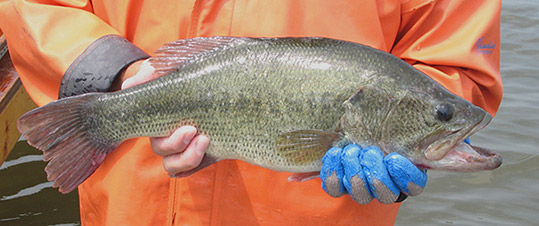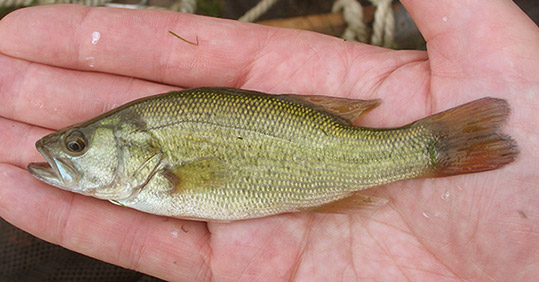Largemouth Bass
The largemouth and smallmouth bass are called black basses, but the former tends to be green in color, usually with an irregular dark band from head to tail.
The largemouth prefers shallow, weedy, slow-moving areas of the Hudson. Like its relatives in the sunfish family, the male makes a nest in spring, clearing silt and debris away from a bed of fine gravel or sand. After a female lays eggs, the male guards the nest and later the newly hatched young. In fall, bass move into the mouths of major tributaries for the winter.
The largemouth bass is one of our most popular freshwater game fish. There are good numbers of them in the Hudson, as shown by the success of black bass tournaments held in Catskill and other river towns. Anglers win prizes for catching the biggest bass and for catching a certain number of bass with the highest average weight. In New York, largemouths can reach a length of twenty-four inches and a weight of nine pounds, but the average is two to three pounds.


